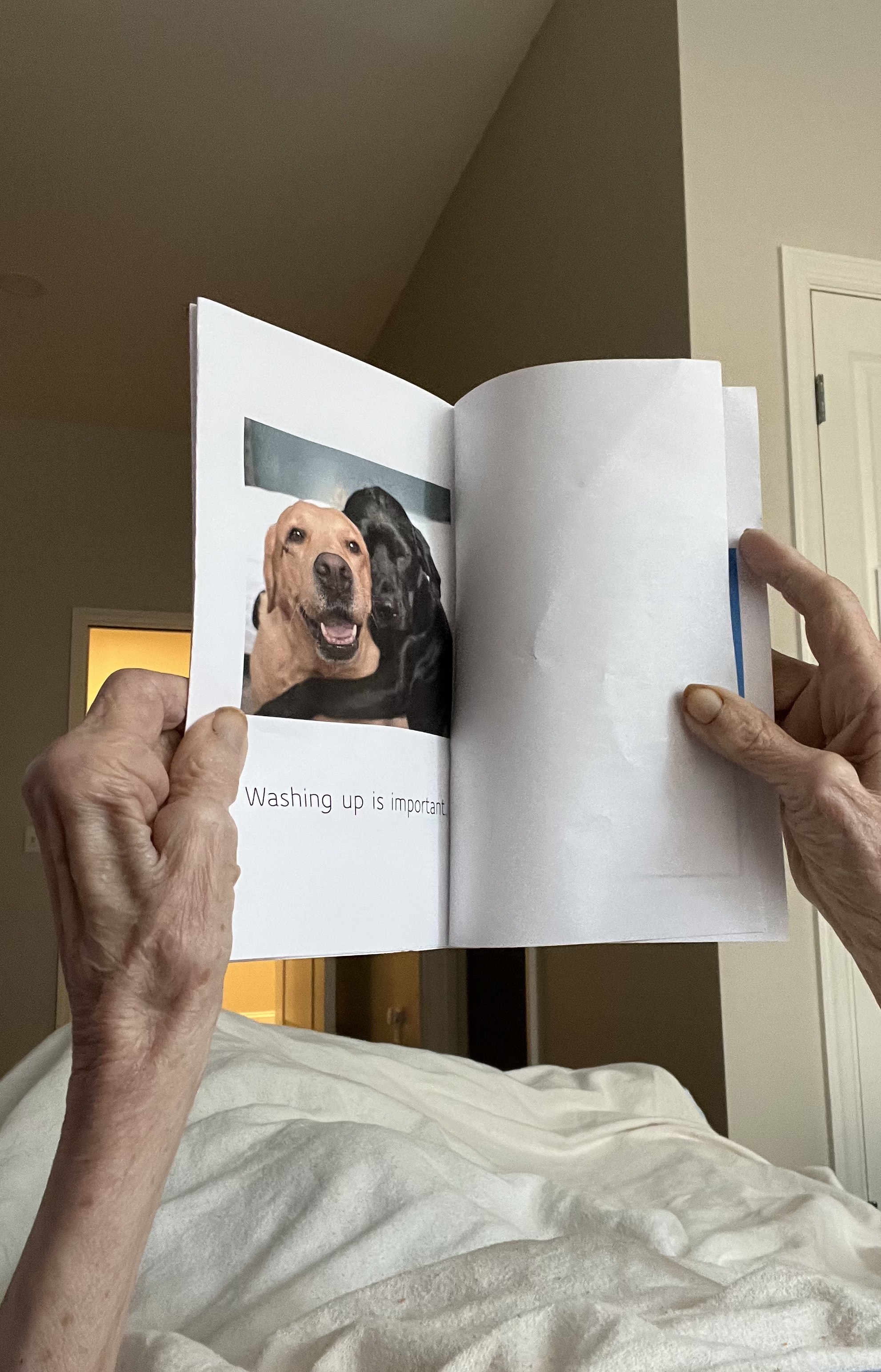Sometimes folks I visit are known to avoid and/or have active resistance to activities of daily living (ADLs) for hygiene care. There are undoubtedly many overlapping factors to this:
- Related to sensory difficulties and changes to their thinking, they may not understand what is happening, or why it is important.
- Related to sensory difficulties and changes to their memory, they may not recognize/remember who is touching them,
- Related to communication difficulties, they may not be able to clearly convey preferences such as if the water is too hot or too cold.
- Related to chronic staff shortages and turnover in this industry, the persons providing hygiene care may have an extremely high workload which requires them to move quickly.
- Related to previous negative (and often intense) experiences, the persons providing hygiene care may be trying to be efficient with the intention of shortening the distress.
- For safety reasons, persons providing hygiene care may be trying to move as fast as they can to contain biologically hazardous waste and reduce risk of infections.
As a volunteer, I am not trained or authorized in providing care for toileting, taking care of teeth/dentures, responding to wounds, or anything related to medications. But I attempt to support a positive atmosphere by explaining what is happening if I am present during a nurse/aide visit (e.g., “This pudding has your medicine. It helps for pain.”), and by providing materials that I hope promote understanding and calm.
I compiled a ‘series’ of four booklets all themed around “Washing Up” and which have the exact same text. The images in the first one all feature ducks, the second all have dogs, the third is all cars/vehicles (with people more visible in most images), and only the last one uses images of elderly persons. My thinking was that having multiple versions without people could reinforce the concepts in a gentle and non-threatening way. I use these during my visits completely unrelated to their hygiene care schedule in the hope that it helps build their understanding of these tasks and increases their feeling comfortable. Often I leave copies for family and staff to consider at other times and also have example language they could use when providing hygiene care.
Each book has the following text:
Soap is used for washing up. Water rinses off bubbles. Dry off with a soft towel. Hair can be combed. Special brushes are used to reach important parts. Washing up is important.
End blip (for now).
